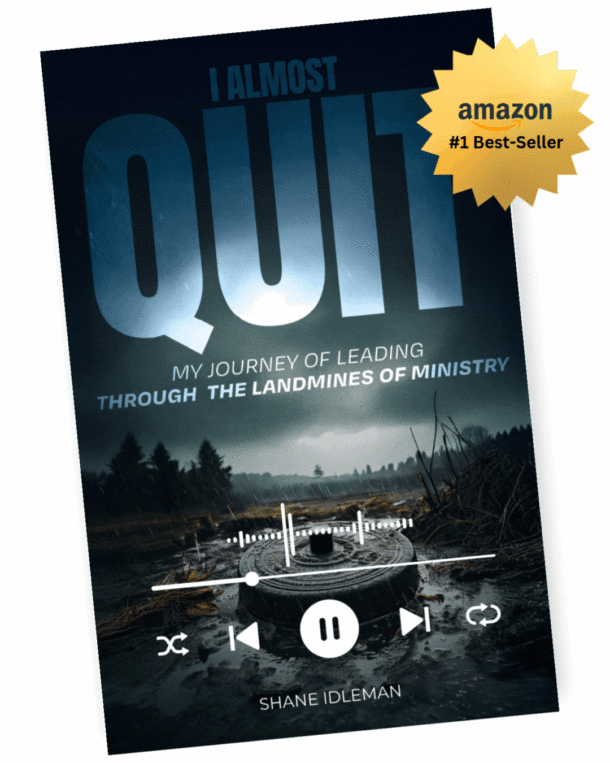Last week, I ended with a few practical suggestions to overcoming pornography; here are more (in addition to last weeks).
Become men and women of prayer. Men would live better if they prayed better. Porn cannot gain a stronghold in a broken, praying heart. If we’re too busy to cultivate a prayer life that places God first—we’re too busy. We’re often too busy because we’re doing too much. “When faith ceases to pray, it ceases to live” (E.M. Bounds). We must spend much time on our knees before God if we are to overcome addictions.
Sorrow doesn’t work; repentance does. Many are sorry, even anguished about pornography, but not repentant. We must see porn as God sees it—a sin that destroys—and repent from it. Repentance is a change of mind that leads to a change in action. Brokenness, genuine sorrow over sin, and humility are marks of sincere repentance. Most advice will fail if the heart is not changed. Repentance is the key.
Avoid compromise. The enemy rarely pushes us off the cliff, so to speak. We’re often led down one step at a time, one compromise at a time, one wrong choice at a time. For example, the enemy doesn’t show a man the pain and anguish and the years of regret that pornography brings; he deceives him with the temporary enjoyment. If the full story was known beforehand (divorce, broken relationships with his children, and so on) no doubt different choices might have been made. We’re often not shown the pain that sin brings; we’re enticed by the temporary pleasure. Remember: sin brings death.
Avoid looking intentionally at things that stimulate lust. There are times when we cannot avoid what we see: a person walking by, a commercial on TV or an unannounced Internet page emerging. Temptation is not sin, but what we do with it can be. What we choose to look at determines where our thoughts will go. Determine beforehand to avoid looking at things that can stimulate lust—entertainment plays a huge role here. Deliverance is often a heart issue that involves action on our part. Sanctification is God’s job, but obedience is ours. This is where the phrase “I’m a work in progress” comes from. Salvation is instantaneous, but sanctification is a process. David said, “I will walk within my house with a perfect heart. I will set nothing wicked before my eyes” (Psalm 101:2-3). Integrity and moral uprightness should be pursued, especially in the home.
Don’t make plans to sin. Proverbs 23:7 says, “For as a man thinks in his heart, so is he.” What you think provides the framework for who you become—thoughts become words, words habits, and habits a lifestyle. Consequently, the more we feed sexual lust, the more we’ll have to fight this desire. Romans 13:14 tells us to “make no provision for the flesh in regard to its lusts.” The word provision means forethought, or planning—don’t make plans to sin. What goes in the mind ultimately comes out in our actions.
A paraphrase of a popular story helps to illustrate this truth: A young man in need of help for his troubled life, walked to a neighboring church. He told the pastor that his life was meaningless and in constant turmoil. He wanted to make better choices but couldn’t. He described the conflict, “It’s as if I have two dogs constantly battling within me. One dog is evil, while the other is good. The battles are long and difficult; they drain me emotionally and mentally.” The pastor asked, “Which dog wins the battles?” Hesitantly, the young man admitted, “The evil dog.” Without a moment’s thought, the pastor said, “Son, that’s the one that you feed the most…you need to starve that dog to death!”
The source of our strength comes from the food that we choose. What we feed grows, and what grows becomes the stronger force within our lives. Sin has a life cycle—it either grows or dies depending on whether we feed or starve it.
Avoid places that stimulate lust. I remember reading an article about a man who avoided the beach in the summer after admitting his addiction to pornography to his wife. He concluded that being around people who were barely covered often triggered his compulsion. Another case involved a man who stopped visiting certain sections at a local video store, and a woman who stopped reading romance novels. Both concluded that viewing this material was stimulating lust. Although these examples may seem extreme, to counter lust, we must avoid places, people, or things that stimulate that desire. We must be selective when posting pictures on Facebook as well, especially pictures of females. Guys are very visual and the distractions can be endless.
Avoid listening to things that stimulate lust. Much of today’s music can be incredibly sexual in nature. Music is a compelling force and lyrics continually place thoughts in our minds. As thoughts grow, actions often follow. What you choose to listen to is vitally important. Whether it’s listening to others or to the media, pay close attention to whom and to what you listen to.
Finally, enlist an accountability partner and begin spending more time in the Word. If your trigger is the internet, download accountability software.
Don’t let discouragement and failure stand in your way. Follow the Apostle Paul’s advice, “Forgetting those things which are behind and reaching forward to those things which are ahead” (Philippians 3:13). Forget your past mistakes, but remember the lessons learned because of them.
BY SHANE IDLEMAN; www.WCFAV.org

